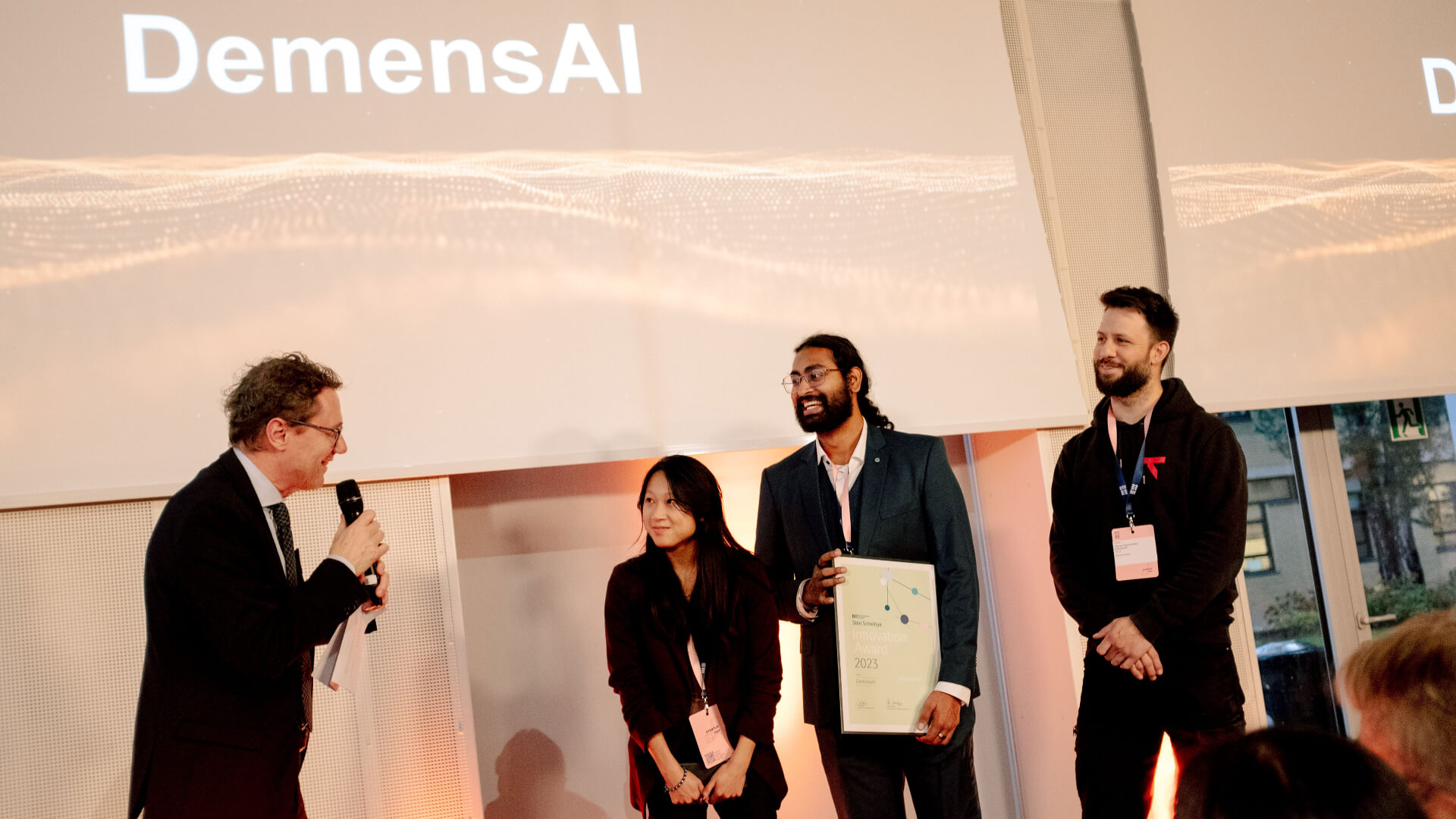Changes in the voice
DemensAI uses a language model similar to ChatGPT to accurately diagnose dementia at an early stage. An audio recording of a consultation between a doctor and a patient with suspected dementia is run through the language model on the computer. The model then analyses both the acoustic and the linguistic features of the recording. The acoustic analysis includes tracking the volume of the patient’s voice and pauses taken while speaking, and the linguistic analysis includes transcribing the audio file, much in the same way that automatic subtitles are generated on YouTube, and then analysing the patient’s vocabulary and grammar.
“We can learn so much about a person’s voice that a human would never be able to detect. This includes detecting dementia through microscopic changes or patterns in the voice or the words that are used. For example, a typical pattern in people with dementia is forgetting people’s names. The problem is that if you have early-stage dementia, there’s a risk that your doctor will wrongfully conclude that you don’t have it because the symptoms are so difficult to spot. Our language model will help to detect dementia in more people,” says Anton Birn.
Tests have shown that DemensAI’s language model can diagnose dementia in 87 per cent of cases.
Early diagnosis can be crucial
Dementia is one of the main causes of death in Denmark. As life expectancy increases, so does the number of people with dementia, and with the healthcare system under pressure, the waiting time for a dementia assessment can be over a year. The long wait can be a big problem for people with dementia, who are missing out on valuable preparation time.
“A dementia diagnosis gives the patient an important understanding of why they suddenly struggle with things at work or at home with the family. It also opens the door to opportunities such as seeking support from the municipality so they can maybe work for longer and their family understands why they’ve changed. In some forms of dementia, the symptoms can also be delayed through medical treatment, a healthy diet, staying physically active, socializing, and stimulating the brain,” says Lene Iben Hvidkjær, professional Dementia Advisor for the Danish Alzheimer’s Association (Alzheimerforeningen).
Further model training
Patients with suspected dementia will initially be examined by their own doctor, who can then provide a referral to a memory clinic. And this is where the wait can be long.
“The problem is that pinpointing the specific dementia diagnosis with the current screening tools can be very difficult in patients with early-stage dementia. The screening tools are expensive and only available at memory clinics, which have very long waiting lists. The screening tests currently available to general practitioners can only be used to assess the degree of cognitive impairment and not the underlying cause. This means that many of the patients referred later turn out to have depression instead of dementia, for example, which requires a completely different referral,” says Anton Birn.
The team behind DemensAI is working to establish a collaboration with several memory clinics. Through this collaboration, their model will get a larger data set with audio recordings from consultations, which will enable the team to further train the model and make it even more accurate. The plan is to use 2024 to verify the model’s performance before testing and implementing it at clinics in 2025.
